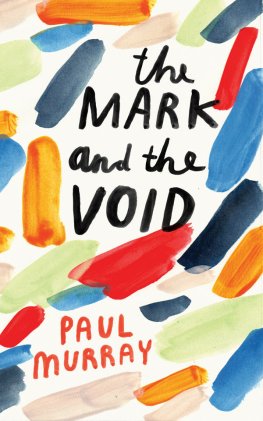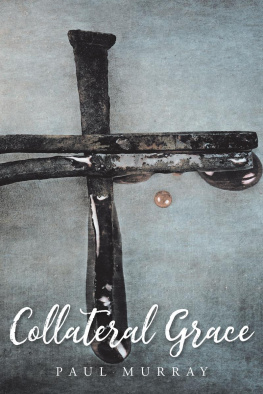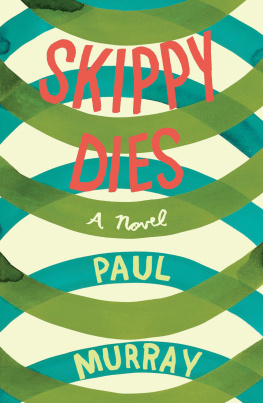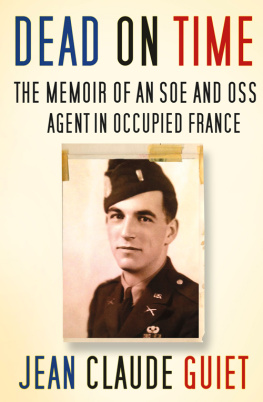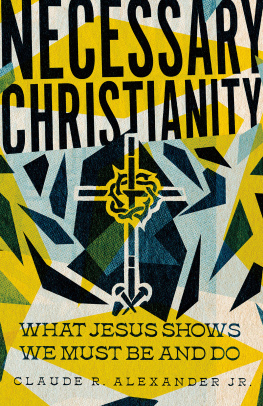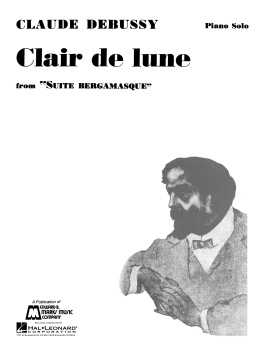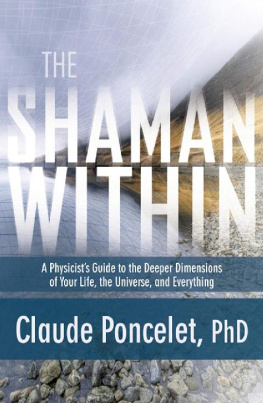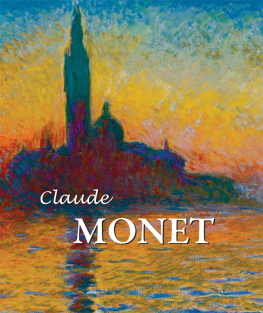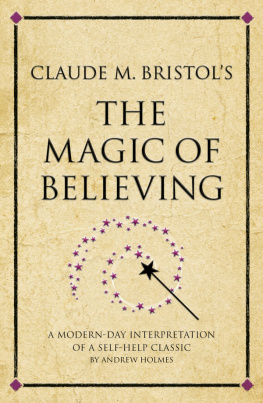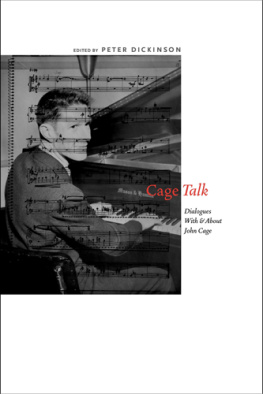Paul Murray
The Mark and the Void
Paul Murray is the author of An Evening of Long Goodbyes, which was shortlisted for the Whitbread First Novel Award in 2003, and Skippy Dies, which was shortlisted for the Costa Novel Award in 2010 and (in the United States) the National Book Critics Circle Award. The Mark and the Void is his third novel. He lives in Dublin.
Idea for a novel: we have a banker rob his own bank. Hes working alone; at first, itll look like a classic inside job. This man, however, is not what youd call an insider. Hes French, not Irish, and although initially he might look like a typical Parisian black suit, expensive shoes, hair neat but worn slightly long as the story unfolds and his past comes to light, we find out he never quite fitted in over there either. He didnt grow up in a leafy suburb, didnt attend a fancy grande cole of the kind that bankers tend to come from; instead he spent his childhood in a run-down corner that the city prefers to disown, and his fathers something blue-collar a welder maybe, a veteran of 1968, a tough nut.
The family doesnt have much: the fathers job is precarious, theyre constantly resorting to moneylenders, bailiffs come to take the car away, all that. But the fathers ambitious for the boy; the fathers determined that hell have a better life. So the son beavers away in his third-rate school and makes it into a second-rate university, and after graduating at the top of his class, hes offered a position in a prestigious French bank. Its dull work, mostly filing and admin, but hes diligent and quick and after a few months his manager takes note of him and recommends him for a start in the Research Department.
As a junior analyst, his official role is to dig up information on companies for the bank and its clients. In practice, he spends his time fixing paper jams, fetching coffees and listening politely while his boss describes his recent sexual adventures. When he gets to do his job, though, he finds that he likes it. More importantly, hes good at it. He watches money flow through the market, learns the secret influences at work on it, begins to understand how a speech made by an obscure politician in, say, Guangzhou can send stock prices soaring, while a rumour about a change in the interest rate can spark a worldwide panic. He works early mornings, late nights, hour after hour in the cold glow of the screen, developing models, monitoring trades, figuring out the best way to persuade a client that he and all of his competitors have got the value of a stock completely wrong. One morning, he checks his bank balance and sees hes got his first bonus: three times what his father would make in a year. Thats when he knows hes made it.
But his fathers not happy. Instead, he looks at the trophies of his sons success the car, the suit, the unblemished hands and despises them. It makes no sense this is what he wanted for him! yet the higher the boy climbs, the angrier the old man becomes. Everything the banker does to impress him has the opposite effect. He brings little gifts to the house, the father wont accept them. He takes them for dinner, the old man wont eat. They argue incessantly, the father berating the son for things he has nothing to do with the neighbourhood changing, the rents going up, the President being elected. He calls him a deserter, a traitor. He looks at his son and sees the emissary of a world that no longer needs him.
What can the banker do? Does the old man genuinely want him to give up his job? That would be crazy, right? Besides, he likes it. He likes being wealthy and respected. He likes having a nice apartment in Auteuil and a nice new Mercedes to take him there; he likes nice meals in Le Grand Vfour and nice clothes from the Rue de Svres; he likes the beautiful girls who all of a sudden like him, and the micro-romances they squeeze in between the markets close on Friday evening and the Monday meeting at 7 a.m. And hes his fathers son: he thrives on opposition. But it gets so bad that they cant even be in the same room together, and after his mother dies, he decides hes had enough. A headhunter calls him about a position at Bank of Torabundo, a rising investment bank with a European HQ in Dublin. They want an analyst to advise clients on financial institutions, domestic and Continental. His language skills make him perfect for the job; theyre offering a significant increase on what hes making in Paris.
He doesnt think of it as flight, nor, exactly, as punishment. Yes, the old man is on his own now. But if theyre ever to have a functional relationship, he needs to learn something about compromise. So the son takes the job, cutting off all contact with home, beyond monthly payments for the live-in nurse. He plans to return to Paris at Christmas and review the situation, only with the global crash he finds hes too busy to get away. Next Christmas, he thinks, without fail. But in April the nurse calls to tell him the old man has died in his sleep.
Thats how we find him as our story begins. Its a couple of months later; hes back in Dublin, passing his days in the service of money; passing most of his nights that way too. He has no friends, no pastimes, no life outside of the bank. He works so hard he doesnt have a moment to himself, or, indeed, a self to have a moment. Someone observing might say he is depressed. He would say he wants only to be left alone. Certainly at this point he has no intention of committing a crime.
Heres the thing, though: someone is observing him. For a number of weeks, someones been watching from a distance a man, dressed all in black. He makes no effort to conceal himself, nor does he make any effort to communicate; hes simply there, a supernumerary presence imprinted on the scene. He never comes closer, just watches, eyes trained on the banker as if through a gunsight; but any day now, the banker knows hell step out of the crowd and call him by his name; and at that moment everything will change.
Thats the set-up. What do you think? Would people buy it?
As a remedy to life in society I would suggest the big city. Nowadays, it is the only desert within our means.
Albert Camus
Claude?
Yes?
What are you doing under your desk?
Me?
Youre not hiding, are you?
Why would I be hiding? I say. I wait a moment, hoping that this will satisfy her, but her feet remain where they are. I am looking for my stapler, I add.
Oh, Ish says. On one ankle, between her patent-leather pumps and the hem of her skirt, I glimpse a slender chain from which several small animal charms dangle. Now a pair of brown brogues approaches over the fuzzy blue carpet tiles and comes to a halt beside Ishs pumps.
Whats happening? I hear Jurgen say.
Claudes looking for his stapler, Ish says.
Oh, says Jurgen, and then, But here is his stapler, directly on the desk.
So it is, Ish says. Claude, your staplers right here on your desk!
I clamber to my feet, and look down to where she is pointing. Ah! I say, attempting to appear pleased and surprised.
Are you coming for lunch? Jurgen says. We are going to the hippie place.
Im rather busy, I say.
Its Casual Day! Ish exhorts me. You cant eat at your desk on Casual Day!
I have a meeting with Walter this afternoon.
Come on, Claude, you cant live on Carambars. She grabs my arm and starts tugging me.
All right, all right, I say, reaching for my suit jacket, pretending not to notice the disapproving eye she casts over me as I put it on.
Ish studied anthropology back in Australia; Casual Day, one of the few rituals we have at Bank of Torabundo, is something she takes very seriously. For most of the staff a pair of well-pressed chinos and perhaps an undone top shirt-button will suffice, but Ish is wearing a low-cut top fringed with tassels, and a long, multicoloured skirt, also with tassels. She has even topped up her tan for the occasion, a deep greasy brown that makes it look like she has smeared her body with pt. This image, when it occurs to me, immediately makes me nauseous, and as we descend in the lift my stomach dips and soars like a fairground ride. I dislike Casual Day at the best of times; today it spurs my paranoia to new and queasy heights.

